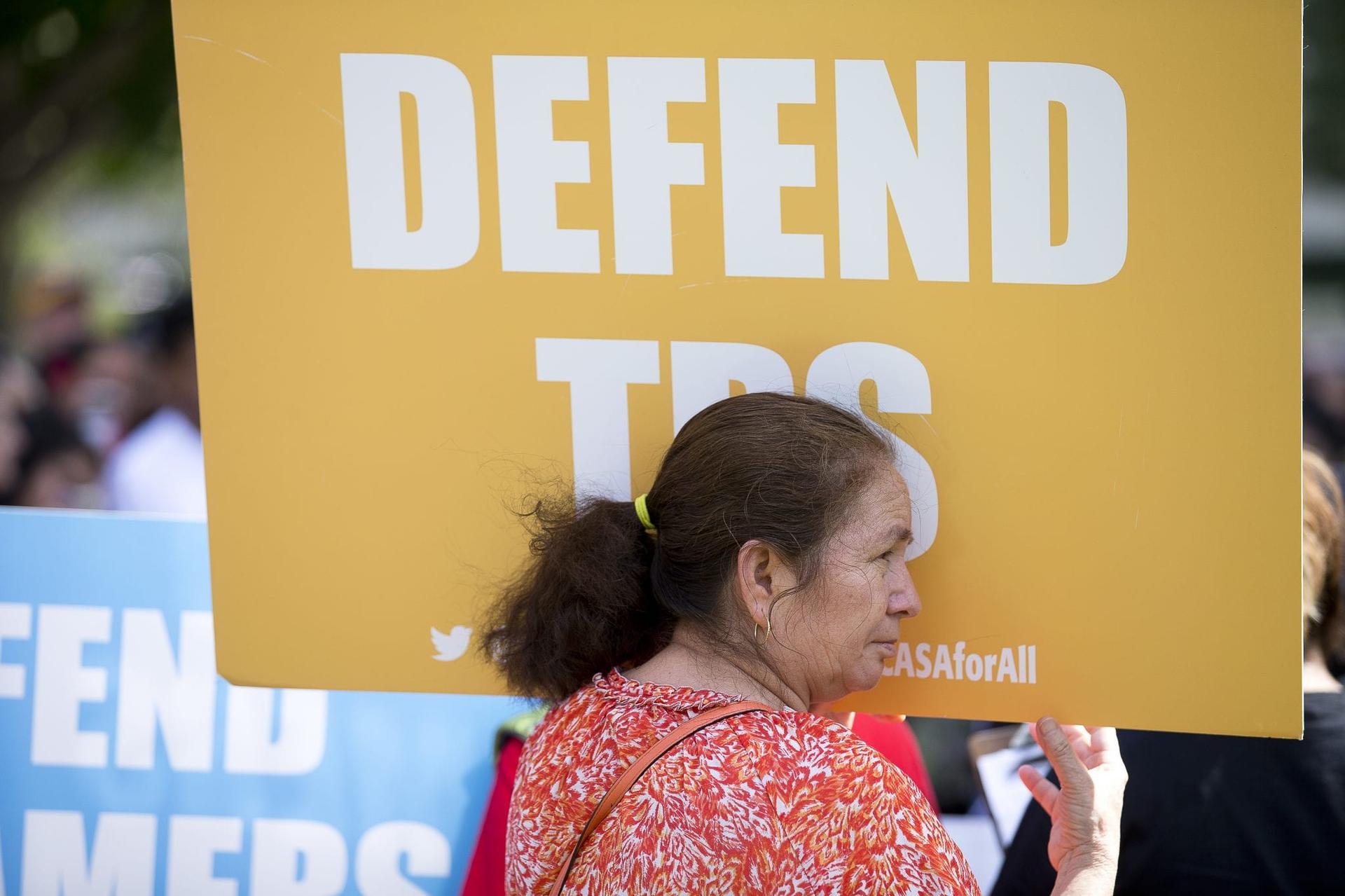NEW YORK – The U.S. bishops have termed the Trump administration’s decision not to renew the Temporary Protected Status (TPS) designation to El Salvador as “heartbreaking” and pledged to stand with Salvadoran TPS recipients as they risk being separated from their families and homes in the United States.
The decision, announced by the Department of Homeland Security (DHS) on Monday, will force over 200,000 El Salvadorans to leave the United States or face potential deportation. DHS also announced that current TPS recipients would be allowed to stay in the U.S. until September 9, 2019 in order to make plans to return to their home country.
“We believe that God has called us to care for the foreigner and the marginalized: ‘So you too should love the resident alien, for that is what you were in the land of Egypt’ (Deut. 10:19),” said Bishop Jose Vásquez, chair of the U.S. Bishops’ Committee on Migration.
“Our nation must not turn its back on TPS recipients and their families; they too are children of God,” he added.
TPS was established by the U.S. Congress in 1990 with bipartisan support and signed into law by George H.W. Bush. The program allows for individuals to reside and work in the U.S. if their home country is under threat from natural disaster, violence, or other extraordinary circumstances.
El Salvador received TPS designation in 2001 following two major earthquakes that left the country in chaos.
Of particular concern to the U.S. bishops are the 192,000 children who are children of TPS recipients and are United States citizens. “Families will be needlessly separated because of this decision,” said Vásquez.
In November, the DHS announced it would not extend TPS designation to Haiti. There are currently 59,000 Haitians living in the United States under the program.
Last month, a joint letter from the United States Conference of Catholic Bishops’ Committee on Migration and leading Catholic immigrant partner organizations was sent to the DHS urging for an extension of TPS.
“Terminating TPS for El Salvador now would be inhumane and untenable; El Salvador is in no position to accommodate the return of roughly 200,000 Salvadorans. In addition to potentially bringing harm to those returned, terminating TPS for El Salvador would likely destabilize this key strategic, regional partner, undermining the tremendous investments of the U.S. government,” they wrote.
Their letter followed an August 2017 trip by a delegation from the USCCB which concluded that the country was facing “growing humanitarian protection challenges,” resulting from internal displacement of families, increased violence, and a wide range of other safety concerns.
In an interview with Crux, Ashley Feasley, director of policy for the USCCB’s Office of Migration Policy and Public Affairs said the decision on TPS is a continuation of a series of anti-immigrant policies put forth by the Trump administration.
“Today’s decision is upsetting as it seems to be a rejection of something that we know to be true – that there is extensive pervasive violence in El Salvador that currently threatens the safety of residents, and that sending people back to that will expose them to great danger – possibly even death,” said Feasley.
“It also continues a deeply disturbing pattern by this administration of eliminating existing humanitarian-based legal immigration programs that benefit hardworking immigrant families and young people who are attempting to follow our immigration laws,” she added.
“Attention turns yet again to Congress to try and move forward and hopefully work together to provide protection. It is a vital moment of decision for our elected lawmakers- the need to act is vital and it’s woven with the idea of what type of nation we want to be.”
Last week Bishop Mark Seitz of El Paso took to the pages of the Capitol Hill newspaper The Hill where he pleaded to save the TPS program.
“How we treat the most vulnerable in our society is reflective of who we are and whether we have learned anything in the 2,000 years since the birth of another immigrant child, born in a stable because his parents could find no room for him at the inn—an event we have just celebrated,” wrote Seitz.
In a statement on Monday, Bill O’Keefe, vice president for government relations and advocacy for Catholic Relief Services, strongly condemned the decision and encouraged Congress to pass bi-partisan legislation that would protect TPS recipients.
“Those protected by TPS until today are loving mothers and fathers to U.S. born children, successful home and business owners, and productive members of our communities and churches,” said O’Keefe. “To terminate TPS is to disregard the potential human impact this decision could have on families and communities.”
The decision from the Trump administration was made during the same time Catholics throughout the country are marking National Migration Week, which spotlights the more than 65 million people around the world who are currently displaced from their homelands.















